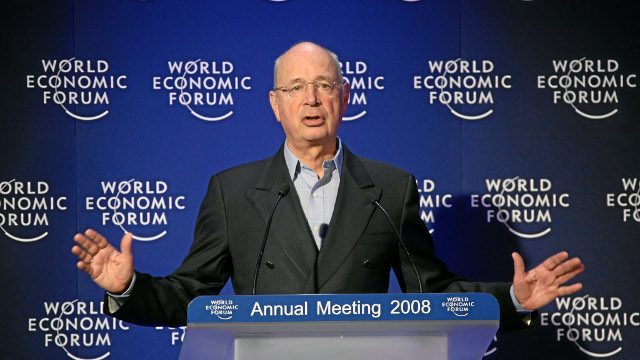This is AI generated summarization, which may have errors. For context, always refer to the full article.
The Philippines is hosting this year's World Economic Forum on East Asia. Here are some facts you need to know about the forum
MANILA, Philippines – The Philippines accepted the offer to host this year the 23rd World Economic Forum (WEF) on East Asia.
The forum will be held on May 21 to 23, and is expected to showcase the growth story of the Philippines, once the “sick man of Asia” and now the fastest-growing economy in the region.
(READ: WEF to showcase Philippines’ growth story)
What exactly is the WEF? Here are some facts you need to know about it:
The WEF is a non-profit organization that engages leaders from almost all sectors of society (business, politics, academe, etc.) in discussions where members “shape industry agendas and improve the state of the world.”
On its website, the WEF claims it is “committed to improving the state of the world through public-private cooperation.”
Its mission is to “serve and build sustained communities through an integrated concept of high-level meetings, research networks, task forces and digital collaboration.”
To fullfill its mission, it convenes in various annual and regional meetings, and produces a series of research reports on various topics (more details below).
The WEF was founded in 1971 by Klaus Scwab, a business professor at the University of Geneva in Switzerland who now serves as WEF Executive Chairman.
Its headquarters are located in Cologny, Geneva, and it has regional offices in Beijing, Tokyo and New York City.
It has held its annual meetings in Davos, also in Switzerland, since 2003.
The WEF was initially called European Management Forum, but was renamed in 1987 “to reflect its expanding scope and transformation from a European to truly global organization.”
Membership in the WEF is composed of private companies. It has around 1,000 foundation members, all described as “world’s top corporations, global enterprises usually with more than US$ 5 billion in turnover.”
It also has 320 industry partners that participate in programs for relevant industry sectors, and 100 strategic partners that are involved in the WEF’s activities at all levels (global, regional, and industry).
Despite being funded by corporations, the WEF claims it is not tied to any special interests, and that it has worked in close cooperation with all major international organizations and in campaigns involving several global initiatives.
Among the initiatives the WEF is engaged in are the GAVI Alliance (Global Alliance for Vaccines and Immunization), the Global Fund to Fight AIDS, Tuberculosis and Malaria, the UN-partnered Global Compact, the expansion of the Organization for Economic Co-operation and Development (OECD) and the development of the G20 concept.
The WEF said it is founded “on a stakeholder theory which asserts that a company is accountable to all parts of society as well as its shareholders, including its employees, civil society, its customers, government
and others who impact its success.”
It actively engages leaders from the business sector (its members), those in the government and civil society to achieve its mission.
As part of its mission, the WEF engages stakeholders in various meetings.
The annual meeting in Davos, which happens every January, gathers “more than 2,500 business, government and civil society leaders from over 90 countries.” The WEF offers “a platform for debate and interaction on controversial issues between the public and scholars, business leaders and policy-makers.”
Apart from the Davos meet, the WEF also convenes annually in 2 other meetings:
- Annual Meeting of the New Champions, known as the Summer Davos, held in China every September
- Summit on the Global Agenda, held in the United Arab Emirates every November.
Regional meetings also take place every year in 6 areas to enable close interaction with local governments and business leaders and organizations.
These events “focus on determining the critical actions necessary to deal with regional challenges and improve competitiveness.”
These areas are:
- Latin America
- Africa
- East Asia
- India
- Europe
- Middle East
The WEF also serves as a think tank, which publishes various reports on a wide range of topics. Reports that the WEF publishes include:
- Global Competitiveness Report, which measures the competitiveness of economies
- Global Information Technology Report, which assesses the competitiveness of countries based on their IT readiness
- Global Gender Gap Report, which looks at critical areas of inequality between men and women
- Global Risks Report, which assess key global risks
- Global Travel and Tourism Report, which measures travel and tourism competitiveness
- Financial Development Report, which provides a comprehensive means for countries to establish benchmarks for various aspects of their financial systems and establish priorities for improvement
- Global Enabling Trade Report, which presents a cross-country analysis of the large number of measures facilitating trade among nations
In the latest WEF reports, the Philippines has significantly improved its rankings.
In the 2013 Global Competitiveness Index, the Philippines jumped a total of 26 places from 2010.
On the other hand, the country rose 8 notches in the 2014 Global Information Technology Report and the Enabling Trade Index. – with research by Loren Bustos/Rappler.com
SOURCES: WEF institutional brochure, WEF About page, Wikipedia

There are no comments yet. Add your comment to start the conversation.